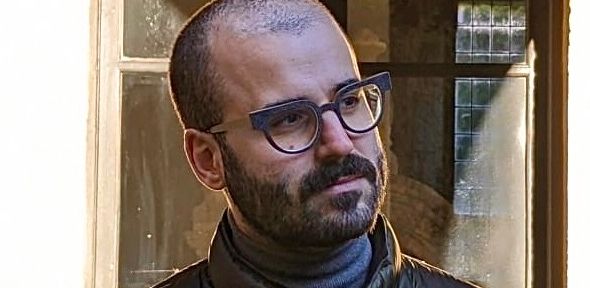
Position:
Junior Research Fellow (Christ’s College)
Affiliated Lecturer (MMLL)
Email: ci244@cam.ac.uk
Personal website https://www.christs.cam.ac.uk/college/people/fellows/dr-carlos-iglesias-crespo
College Christ’s College
Location
Christ’s College, St Andrew’s Street, Cambridge CB2 3BU
About
Carlos Iglesias-Crespo is Junior Research Fellow in Modern Languages and History at Christ’s College. He works at the interface between the literature, thought, and politics of early modern Spain and its wider European and colonial world. His scholarship centres on the co-constitutive links between poetry and the period’s epistemological frameworks, the cultural politics of empire, the embodied experience of war and violence, and the intellectual world of Renaissance humanism. At present, he is developing his first monograph, entitled Memory on the Line: Petrarchan Poetry, Intellectual Change, and Imperial Identity in Early Modern Spain.
Carlos holds undergraduate degrees in Classics and Spanish Philology from the Universidad de Extremadura and earned his MPhil and PhD from the University of Cambridge. He joined Christ’s as JRF after a lectureship at the University of Oxford. His work has been supported by the “La Caixa” Foundation, the Arts and Humanities Research Council, and the Cambridge Trust.
Research interests
• Early modern Spanish and Colonial Latin American literature
• Petrarch and Petrarchism
• Memory Studies
• Poetics and Rhetoric
• Intellectual History
• Humanism
• History of Empire
• War Studies
• History of the Body
• Disability Studies
• Cognitive Literary Studies
• Law and Literature
Recent research projects
Co-edited books and special issues:
Horizontes de la historia del cuerpo en las literaturas y culturas iberoamericanas: nuevas perspectivas de la Edad Media al presente (Madrid: Sílex, 2025). Co-edited with Sergio Martínez Rey.
Ecos globales: los mundos de la poesía hispánica de la Modernidad temprana. Special issue of Calíope (vol. 28, no. 1, 2023). Co-edited with Jessica Hagley.
Conclausa (Cáceres: Universidad de Extremadura, 2020). Co-edited with Victoria Alzina Lozano. Shortlisted for Best Edited Work in the XXIV Premios Nacionales de Edición Universitaria (Spain).
Articles and chapters:
‘Fernando de Herrera y Luís de Camões: polémica y política en torno a la Elegía I (Algunas obras, 1582)’, Revista de Filología Española (forthcoming).
‘Apuntes para una historia del cuerpo en las literaturas y culturas iberoamericanas’. With Sergio Martínez Rey. In Horizontes de la historia del cuerpo en las literaturas y culturas iberoamericanas (Madrid: Sílex, 2025), pp. 13-70.
‘La eficacia de Garcilaso: una retórica del cuerpo en los sonetos XXIII y XIII (entre erotismo y violencia)’. In Horizontes de la historia del cuerpo en las literaturas y culturas iberoamericanas (Madrid: Sílex, 2025), pp. 139-181.
‘A Cognitive Poetics of Wonder: The Synthesis of Aristotelian Rhetoric, Grammar, and Psychology in Fernando de Herrera’s Anotaciones’, Journal for the History of Rhetoric 27.1 (2024): 47-69.
‘A la sombra de Salustio y Lucrecio: la translatio imperii et studii como estrategia de promoción en el prólogo de Francisco de Medina a las Anotaciones de Fernando de Herrera’, Calíope 28.1 (2023): 59-77.
‘“Que la beldad es vuestra, la voz mía”: A Cognitive Pragmatic Answer to a Gongorine Crux’, The Bulletin of Hispanic Studies 100.2 (2023): 141-158.
‘Reading Garcilaso’s Love Sonnets in the Anotaciones: Relevance Theory and the Poetics of Failure’, Bulletin of Spanish Studies 99.2 (2022): 199-219.
‘The Loss of Spain: A Symptom in Poema de Fernán González and Estoria de Espanna’, Hispanic Research Journal 24.4 (2022): 279-295.
‘La metarretórica cognitiva aristotélica y su relación con el tratamiento de la memoria en la Rhetorica ad Herennium’, Rhetorica 40.1 (2022): 1-22.
‘Staging the Emotions in Giulio Camillo’s Theatre: Syncretism, Embodied Cognition and the Arts of Memory’, Ágora 24.1 (2022): 83-103.
‘Energeia as Defamiliarization: Reading Aristotle with Shklovsky’s Eyes’, Journal for the History of Rhetoric 24.3 (2021): 274-289.


